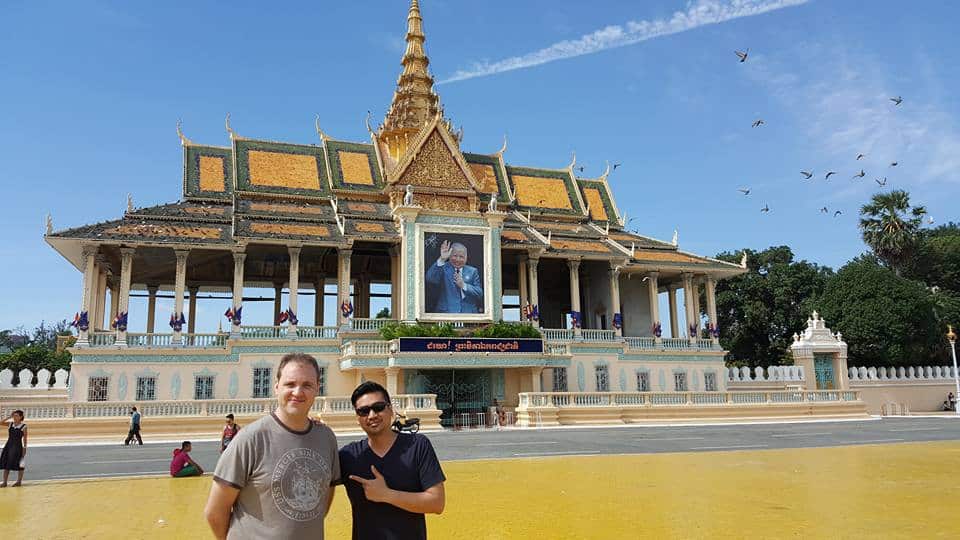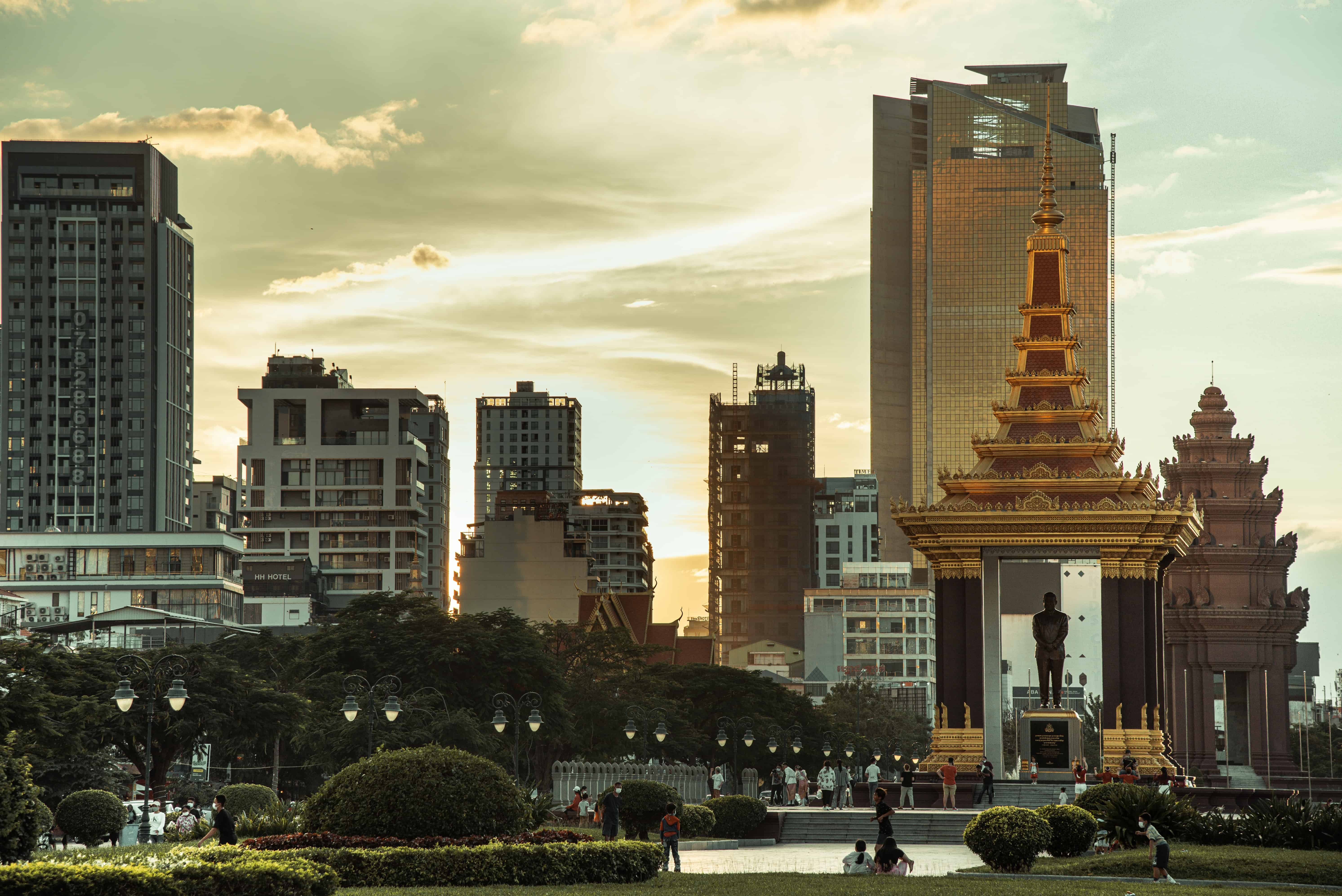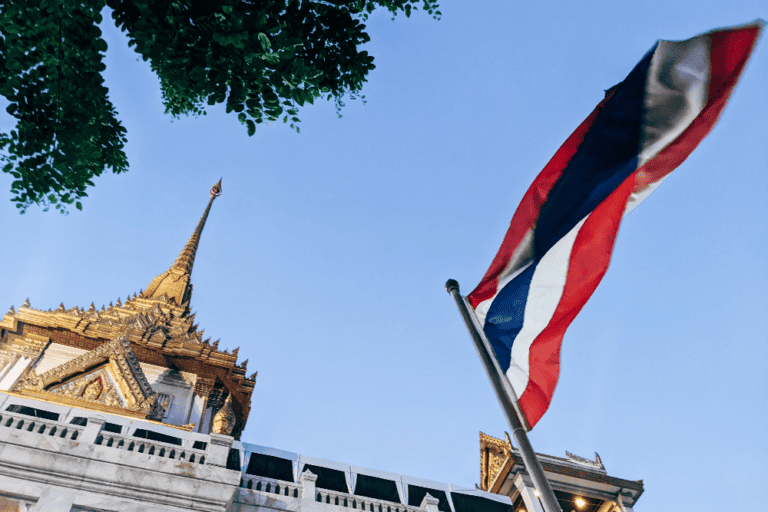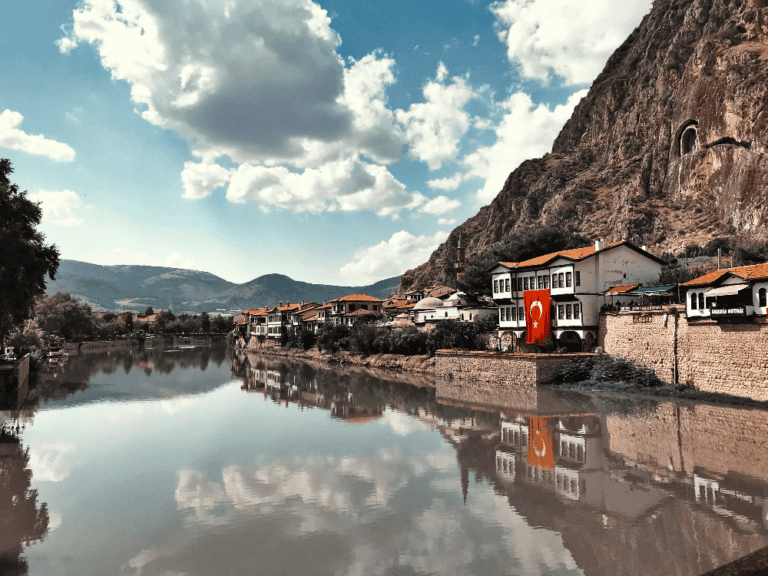Phnom Penh Cost of Living 2024: Is It Really Expensive? An Honest Review from a Long-Time Resident
In June 2024, US-based global consulting firm Mercer published its Cost of Living City Ranking, listing Phnom Penh as the 2nd most expensive city in Southeast Asia. As someone who has lived in and traveled extensively throughout the region, this news came as a shock.
One of the main reasons I chose to live in Phnom Penh was its affordability. Could I have been wrong about the cost of living here?
As a long-time resident, I aim to provide an honest review of Phnom Penh’s cost of living in 2024. Based on my personal experience and frequent travels to other countries, I’ll share insights to determine if Phnom Penh truly deserves its new ranking.
Where is Phnom Penh? What is it Known For?
Phnom Penh, the bustling capital of Cambodia, is a city that beautifully blends tradition and modernity. Situated in Southeast Asia, Phnom Penh is strategically located at the confluence of the Tonle Sap, Mekong, and Bassac rivers. This geographical position has not only made it a significant hub for trade and commerce but also endowed it with a rich cultural heritage.
Location and Accessibility
Phnom Penh is situated in the southern part of Cambodia. The city’s location makes it an essential gateway to exploring the rest of the country, including the famous temples of Angkor Wat in Siem Reap and the coastal city of Sihanoukville. Phnom Penh is accessible by air, with the Phnom Penh International Airport serving as the main entry point for international travelers.
Additionally, the city is well-connected by road and waterways, making it an ideal starting point for any Cambodian adventure.
Glimpse into History
Phnom Penh has a storied history that dates back to the 15th century when it became the capital of Cambodia. The city’s name is derived from “Wat Phnom” (Hill Temple) and “Penh,” after Lady Penh, who, according to legend, discovered four Buddha statues in a tree trunk floating down the Mekong River. She built a shrine on a hill to house the statues, and thus Phnom Penh was born.
What is Phnom Penh Famous For?
1. Royal Palace and Silver Pagoda
The Royal Palace, a stunning example of traditional Khmer architecture, is one of Phnom Penh’s most iconic landmarks. Within its complex lies the Silver Pagoda, named for its floor covered with over 5,000 silver tiles. The pagoda houses many national treasures, including gold and jeweled Buddha statues.
2. Tuol Sleng Genocide Museum and Killing Fields
Phnom Penh holds poignant reminders of Cambodia’s tragic past during the Khmer Rouge regime. The Tuol Sleng Genocide Museum, formerly a high school turned into a notorious prison, and the Killing Fields of Choeung Ek provide sobering insights into the atrocities committed during this dark period. These sites serve as important memorials and educational centers, reminding visitors of the resilience and spirit of the Cambodian people.
3. Vibrant Markets
Phnom Penh is home to several bustling markets that offer a sensory overload of sights, sounds, and smells. The Russian Market (Psar Toul Tom Poung) and Central Market (Psar Thmei) are particularly popular, offering everything from traditional handicrafts and souvenirs to fresh produce and street food. These markets are perfect for those looking to immerse themselves in local culture and pick up unique souvenirs.
4. Riverside Promenade
The city’s picturesque Riverside Promenade along the Tonle Sap River is a favorite spot for both locals and tourists. Lined with cafes, restaurants, and boutiques, it’s an ideal place for a leisurely stroll or to enjoy a meal while watching the sunset over the river. The promenade also provides a fantastic view of the Royal Palace and is often bustling with activity, especially in the evenings.
5. Culinary Delights
Phnom Penh’s culinary scene is diverse and delicious, reflecting its rich cultural tapestry. From traditional Khmer dishes like Amok (a coconut milk-based curry) and Bai Sach Chrouk (grilled pork with rice) to international cuisines, the city offers a wide range of dining options. Street food is also a major highlight, with countless vendors serving up tasty treats at every corner.
6. Cultural Festivals
The city hosts numerous festivals throughout the year, celebrating everything from religious traditions to arts and music. The Water Festival (Bon Om Touk), marking the reversal of the Tonle Sap River’s flow, is one of the most spectacular events featuring boat races, fireworks, and lively celebrations. Other notable festivals include the Khmer New Year (Chaul Chnam Thmey) and Pchum Ben (Ancestor’s Day).
More Than Just A City
Phnom Penh is more than just the capital of Cambodia; it’s a city that embodies the resilience, traditions, and vibrant spirit of its people. With its rich history, cultural landmarks, bustling markets, and delicious cuisine, Phnom Penh offers an array of experiences for travelers seeking to explore the heart of Southeast Asia.
Whether you’re a history buff, a foodie, or simply an adventurer at heart, Phnom Penh is a destination that promises to captivate and inspire.
Why Did I Move To Phnom Penh?
Besides the reasons mentioned earlier, there are additional factors that led me to relocate and stay in Phnom Penh for many years.
Before coming to Phnom Penh, I lived in Siem Reap, the second-largest city in Cambodia and my initial home upon relocating to the country. Siem Reap is a great place, known for its laid-back atmosphere and a lot of fun experiences.
However, I encountered financial difficulties while staying there, and moving to Phnom Penh helped me overcome these challenges.
I share this story because it highlights what Phnom Penh represents to people like me: a city of many opportunities. Specifically, the advantages of staying in Phnom Penh include:
Economic Opportunities
- Job Market: As the capital city, Phnom Penh has a more diverse and robust job market. There are numerous opportunities in sectors such as finance, real estate, education, hospitality, and NGOs. The presence of international companies and organizations also contributes to a wider range of employment opportunities.
- Business Opportunities: The city is a hub for business and entrepreneurship, offering more resources and networking opportunities for startups and established businesses. The presence of numerous banks, financial institutions, and investment firms facilitates easier access to capital and financial services.
Infrastructure and Amenities
- Healthcare: The city boasts better healthcare facilities with several international-standard hospitals and clinics. This is particularly important for expatriates and locals seeking quality medical care.
- Education: Phnom Penh has a wider range of educational institutions, including international schools and universities, making it an attractive destination for families with children.
- Transportation: The city has better infrastructure with more developed roads, public transportation options, and a larger airport with more international and domestic flight connections.
Cultural and Social Scene
- Diverse Social Scene: The capital has a vibrant and diverse social scene with numerous restaurants, bars, cafes, and cultural events. The expatriate community is larger and more varied, providing ample opportunities for socializing and networking.
- Diverse Dining and Entertainment Options: Phnom Penh offers a wider variety of dining and entertainment options, ranging from high-end restaurants and cafes to local street food markets. The city’s nightlife is vibrant, with plenty of bars, clubs, cinemas, and cultural performances, catering to different tastes and preferences.
- Shopping and Retail: The capital city features numerous shopping malls, supermarkets, and boutique stores, making it easier to find both local and international products. Whether you’re looking for luxury brands or everyday essentials, Phnom Penh has more shopping options than Siem Reap.
- Cultural Attractions: The city is home to significant cultural and historical landmarks such as the Royal Palace, National Museum, and Wat Phnom, offering residents a rich cultural experience.
Cost of Living
- Variety in Accommodation: Phnom Penh offers a wide range of accommodation options from affordable apartments to luxury condos, catering to different budgets and preferences.
- Competitive Prices: While the cost of living can be higher in some areas compared to Siem Reap, the availability of various amenities and services provides good value for money.

More Information About the Cost of Living in Phnom Penh (Based on My Personal Experience as a Long-Time Resident)
I won’t sugarcoat it: Phnom Penh has seen a rise in the cost of living over the past few years. However, “expensive” is a relative term. Compared to Western capitals and other Southeast Asian cities where I’ve lived and visited, Phnom Penh remains significantly more affordable.
Here’s a breakdown of the current costs and prices in Phnom Penh, based on my personal research and expenses as of July 2024:
Housing Costs
Housing remains one of the most significant expenses in Phnom Penh. In 2024, the rental market continues to be competitive, especially in popular expat neighborhoods such as BKK1 and Tuol Tom Poung.
- Apartments: A one-bedroom apartment in these areas can cost around $150 per month, depending on amenities and location.
- Condos: A one-bedroom condo can range from $350 to $450 per month, depending on amenities and location.
Food and Dining
Phnom Penh offers a wide range of dining options, from street food to high-end restaurants.
- Street Food: You can find delicious street food meals for as little as $1.50 to $3. Popular dishes include kuy teav (noodle soup), bai sach chrouk (pork and rice), and various stir-fries.
- Restaurants: Mid-range restaurants offer meals for around $5 to $15 per person. High-end dining establishments might charge $20 to $50 per meal.
Transportation
Transportation in Phnom Penh is relatively affordable but varies based on your mode of choice.
- Tuk-Tuks: These are ubiquitous and convenient. Short rides within the city center cost around $1.50 to $5.
- Public Transport: The city has recently developed a bus system, with fares as low as $0.40 per trip.
- Car/Motorbike Rental: Renting a motorbike costs about $60 to $100 per month, while car rentals start at around $400 per month.
For long-term stays, purchasing a second-hand motorbike or car can be more economical.
Entertainment and Leisure
Phnom Penh offers a variety of entertainment options that cater to different budgets.
- Cinema: A movie ticket at a modern cinema complex costs around $5.
- Gyms and Fitness: Gym memberships range from $30 to $80 per month, depending on the facilities.
- Nightlife: Enjoying a night out can vary greatly – cocktails at a rooftop bar may cost $6 to $12, while a local beer at a neighborhood bar is around $1.50 to $3.
Utilities
Utilities in Phnom Penh are reasonably priced, although they can add up depending on your usage.
- Electricity: $50 to $150 per month, depending on the size of your apartment and the usage of air conditioning.
- Water: $5 to $10 per month.
- Internet: High-speed internet costs around $15 to $30 per month.
Groceries
Buying groceries and cooking at home can be more cost-effective, especially if you shop at local markets. Here are some average prices for common items:
- Rice (1 kg): $1
- Chicken Breast (1 kg): $4
- Local Cheese (1 kg): $15
- Milk (1 liter): $1.50
- Eggs (12): $2
Healthcare
Healthcare in Phnom Penh ranges from affordable local clinics to more expensive international hospitals.
- Local Clinics: A visit to a local clinic can cost as little as $10 to $30.
- International Hospitals: Consultation fees at international hospitals range from $50 to $100.
For more information, you may watch my video below:
My Final Thoughts
Living in Phnom Penh has been a refreshing experience for me—affordable, vibrant, and full of life. So, when the 2024 Mercer Cost of Living ranking listed it as Southeast Asia’s second most expensive city, I was surprised and felt compelled to write this blog.
That said, I’m not denying that cities evolve and costs can shift.
Where Does My Take Come From?
Having lived and worked in Phnom Penh for years, I’m well aware of the cost increases, but honestly, they haven’t been significant. Additionally, having lived and traveled extensively in other Southeast Asian cities, I have a good sense of comparative living costs.
Comparing Phnom Penh to Other Cities in the Region
When compared to other major Southeast Asian cities, Phnom Penh’s cost of living is more affordable. Here’s some 2024 data to consider:
- Singapore: Monthly rent for a 480 sqft furnished studio in a normal area usually costs around $2,000 and above. A basic lunchtime menu (including a drink) for one person typically costs around $9 and above.
- Hong Kong: Monthly rent for a one-bedroom apartment is around $1,000 and above. The average daily cost of food is around $25.
- Bangkok: Monthly rent for a one-bedroom condo is around $500 and above. Food (in malls) for one person usually costs around $8.
Tips for Reducing Expenses
If you still find the cost of living in Phnom Penh to be high, here are some tips to help you save:
- Live Locally: Opt for housing in less popular expat areas to save on rent.
- Market Shopping: Buy fresh produce and groceries from local markets instead of supermarkets.
- Public Transport: Use buses and shared rides to reduce transportation costs.
- Local Dining: Enjoy the plethora of affordable local food rather than frequenting high-end restaurants.
- Cook at Home: Groceries are affordable, and cooking allows for significant savings.
- Explore Free Activities: Phnom Penh has beautiful parks, stunning temples, and free cultural events.
- Negotiate Rents: Rents are often negotiable, especially for longer stays.
All in All…
Phnom Penh’s cost of living in 2024 reflects its dual nature as both a traditional city and a burgeoning urban center. While certain aspects seem costly, the city offers numerous ways to live affordably if you know where to look.
Whether you’re a newcomer or a long-time resident like me, understanding and navigating these expenses ensures you can enjoy all that Phnom Penh has to offer without breaking the bank.
In summary, Phnom Penh may have a reputation as one of Southeast Asia’s pricier cities, but with smart choices and local knowledge, it’s entirely possible to live comfortably and economically in this dynamic capital.
So, what are you waiting for? Visit Phnom Penh and see if you can call it your second home.
For more information about the cost of living in Cambodia and other insights, please check out my article “Holiday in Cambodia: 11 Reasons Why Your Next Family Vacation Should Be in the ‘Kingdom of Wonder’.”
Safe travels!
Disclaimer: The information and opinions expressed in this blog post are for informational purposes only and are not intended to be construed as professional advice. Please consult with a qualified professional before making any financial decisions, traveling, or purchasing a product or service. This information is also based on personal experiences and/or research at the time of writing, and new information and updates may be available on the topic being discussed. Please conduct further research before making any decisions.












